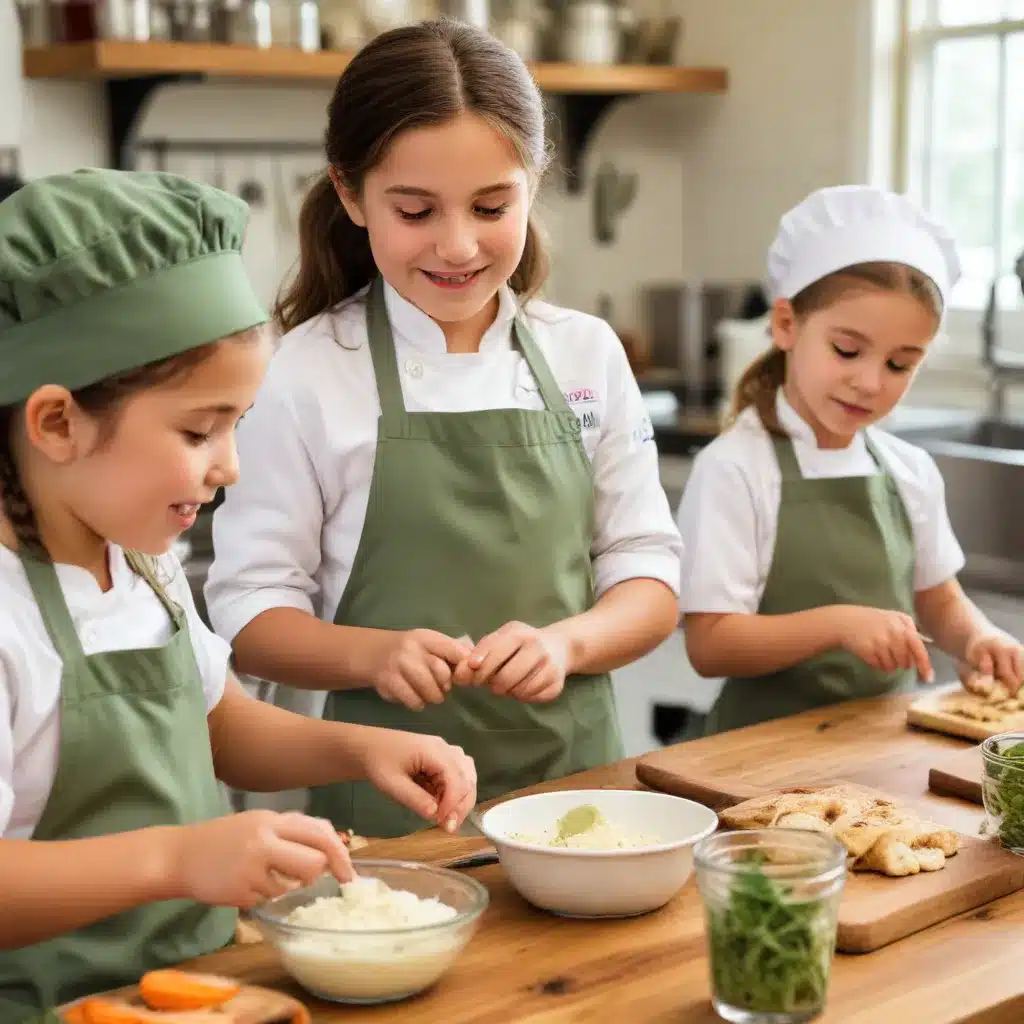
Learning to cook can be a transformative experience for children, sparking their curiosity, cultivating healthy habits, and instilling valuable life skills. At Crooked Pines Farm, we believe that the best way to nurture this culinary education is by connecting kids directly with the source of their food – the farm. Our farm-to-table cooking classes invite young students to explore the wonders of seasonal ingredients, discover the joys of hands-on food preparation, and develop a deeper appreciation for sustainable agriculture.
Benefits of Farm-to-Table Cooking Classes
Promoting Healthy Eating Habits: By engaging children in the process of growing, harvesting, and cooking wholesome, farm-fresh ingredients, our classes empower them to make nutritious food choices. As they learn about the origins of their food, its nutritional value, and fun ways to prepare it, kids are more likely to adopt a healthy relationship with what they eat.
Fostering Appreciation for Seasonal Ingredients: Rather than relying on out-of-season produce shipped from afar, our classes celebrate the bounty of each season. Children discover the unique flavors and textures of heirloom tomatoes in summer, crisp apples in fall, and hearty root vegetables in winter. This seasonal focus instills an understanding of how the land and climate shape the food we eat.
Developing Practical Life Skills: Cooking is an essential life skill that empowers children to become more self-sufficient. In our classes, kids learn fundamental techniques like measuring, chopping, sautéing, and baking. They also gain experience in meal planning, food budgeting, and food safety – invaluable lessons for a lifetime of healthy, home-cooked meals.
Curriculum Design Considerations
Age-Appropriate Lesson Plans: Our cooking classes are tailored to different age groups, from budding chefs in elementary school to aspiring home cooks in middle and high school. Younger students might focus on simple, hands-on recipes and sensory exploration, while older participants dive deeper into nutrition, global cuisines, and advanced culinary skills.
Hands-On Culinary Experiences: At the heart of our farm-to-table classes are the opportunities for kids to get their hands dirty – literally. Whether they’re planting seeds in the garden, harvesting fresh produce, or assembling a colorful, nutritious meal, the hands-on approach engages multiple senses and cements their learning.
Engaging Instructional Techniques: To keep students captivated, our educators blend interactive demonstrations, engaging storytelling, and playful, collaborative activities. We might challenge kids to create their own unique salad dressings, organize a veggie-themed relay race, or host a mini iron chef competition using the day’s harvest.
The Role of Local Farms in Culinary Education
Connecting with Community Farms: Crooked Pines Farm is proud to partner with a network of local, sustainable farms to source the ingredients for our cooking classes. By forging these connections, we not only ensure the freshness and quality of our produce but also introduce students to the farmers who work tirelessly to cultivate it.
Exploring Sustainable Food Systems: During farm visits, kids gain a deeper understanding of how their food is grown, from soil preparation and seed selection to pest management and water conservation. These insights spark important conversations about the environmental impact of our food choices and inspire the next generation of conscientious consumers.
Integrating Farm Visits into Classes: To fully immerse students in the farm-to-table experience, we incorporate frequent field trips into our curriculum. Whether they’re harvesting carrots in the garden, collecting eggs from the chicken coop, or meeting the resident goats, these hands-on encounters bring the lessons to life and foster a profound connection to the land.
Nurturing Creativity in the Kitchen
Encouraging Experimentation: Rather than rigidly following recipes, our cooking classes encourage kids to embrace their inner chef. We provide a foundation of culinary skills and then challenge students to get creative with flavor combinations, presentation techniques, and recipe improvisation.
Fostering Culinary Confidence: As students gain experience in the kitchen, they build the confidence to trust their senses, explore new ingredients, and put their own unique spin on familiar dishes. This sense of culinary empowerment helps nurture a lifelong love of cooking.
Celebrating Diverse Culinary Traditions: Our classes celebrate the rich diversity of the world’s cuisines, introducing students to flavor profiles, cooking methods, and cultural traditions from around the globe. By honoring this multicultural approach, we cultivate an appreciation for the expansive possibilities of farm-fresh, seasonal cooking.
Collaborative Learning Environment
Fostering Teamwork: Cooking is often a collaborative endeavor, and our classes reflect this reality. Students work together in small groups, learning to communicate effectively, delegate tasks, and support one another in the kitchen.
Peer-to-Peer Mentorship: As students progress through our cooking program, we encourage older participants to share their knowledge and skills with younger learners. This peer-to-peer mentorship not only reinforces their own culinary expertise but also fosters a sense of community and shared purpose.
Cultivating a Sense of Community: Beyond the classroom, our farm-to-table cooking classes bring families together around the table. By hosting seasonal events, potluck dinners, and community celebrations, we create opportunities for students, parents, and neighbors to connect over the joy of shared, nourishing meals.
At Crooked Pines Farm, we believe that the future of our food system lies in the hands of the next generation. By empowering kids to explore the origins of their food, develop practical cooking skills, and engage with their local food community, our farm-to-table cooking classes lay the foundation for a healthier, more sustainable world. Join us in nurturing the young chefs of tomorrow!


